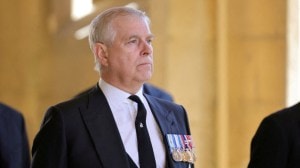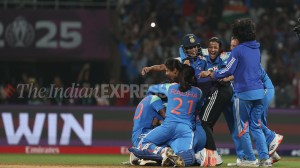US media won’t swallow FICCI progress report
With the promise of an interface between 11 American editors and Indian MPs, one expected some fireworks at FICCI house today. Instead, at t...

With the promise of an interface between 11 American editors and Indian MPs, one expected some fireworks at FICCI house today. Instead, at the end of the 15-minute meeting, off-limits for the media here, secretary general Amit Mitra said the editors went away impressed with the India Report he had put together.
‘‘You saw it, some of the facts about India were not known to them,’’ Mitra said. The highpoints of his presentation — India will remain a young nation with the median age going up from 21 in 2000 to 26 in 2025; accelerated decline in poverty level in the 90s; highest income household group in the fastest growing segment from 2000-2006; more than 100 global companies outsource R&D facilities from India.
Initially, the MPs were outnumbered by journalists, but the legislators soon trickled in. BJP MP Jay Panda spoke of his state, Orissa, which has started showing signs of improvement with a Korean steel company promising $10 billion investment. Manvendra Singh from Rajasthan made a similar pitch. But the duo were stumped as Congress MP Tejaswini praised the Mahatma, Rajiv Gandhi and Sonia Gandhi who put India on the right track towards progress and had a poser for the visiting journalists. ‘‘Tell me, why US keeps quiet when we are being attacked by our enemies?’’ she said.
As for the BJP MPs, they had to face a question from Andrew Ross of San Fransisco Chronicle, who wanted to know why the NDA lost despite impressive growth figures. Panda launched into the intricacies of an incumbent government fighting elections, and hoped the visit of the journalists would help in removing distortions in news presentation. More candid than the others, Ross said American publications were still to figure out India as far as investing in the country was concerned.
The much-promised 20 minutes interaction with the Indian media did not happen and the much-in-demand Jill Abramson, managing editor of New York Times, clamped up. ‘‘I just don’t have the time,’’ she excused herself.
In the coming fortnight, the journalists will figure out a lot more on their own. Julie Small of the National Public Radio, for instance, started off with wondering why there was a proposal for caste-based reservations in the private sector. She was not happy with the answers.



- 017 hours ago
- 027 hours ago
- 037 hours ago
- 045 hours ago
- 057 hours ago




























